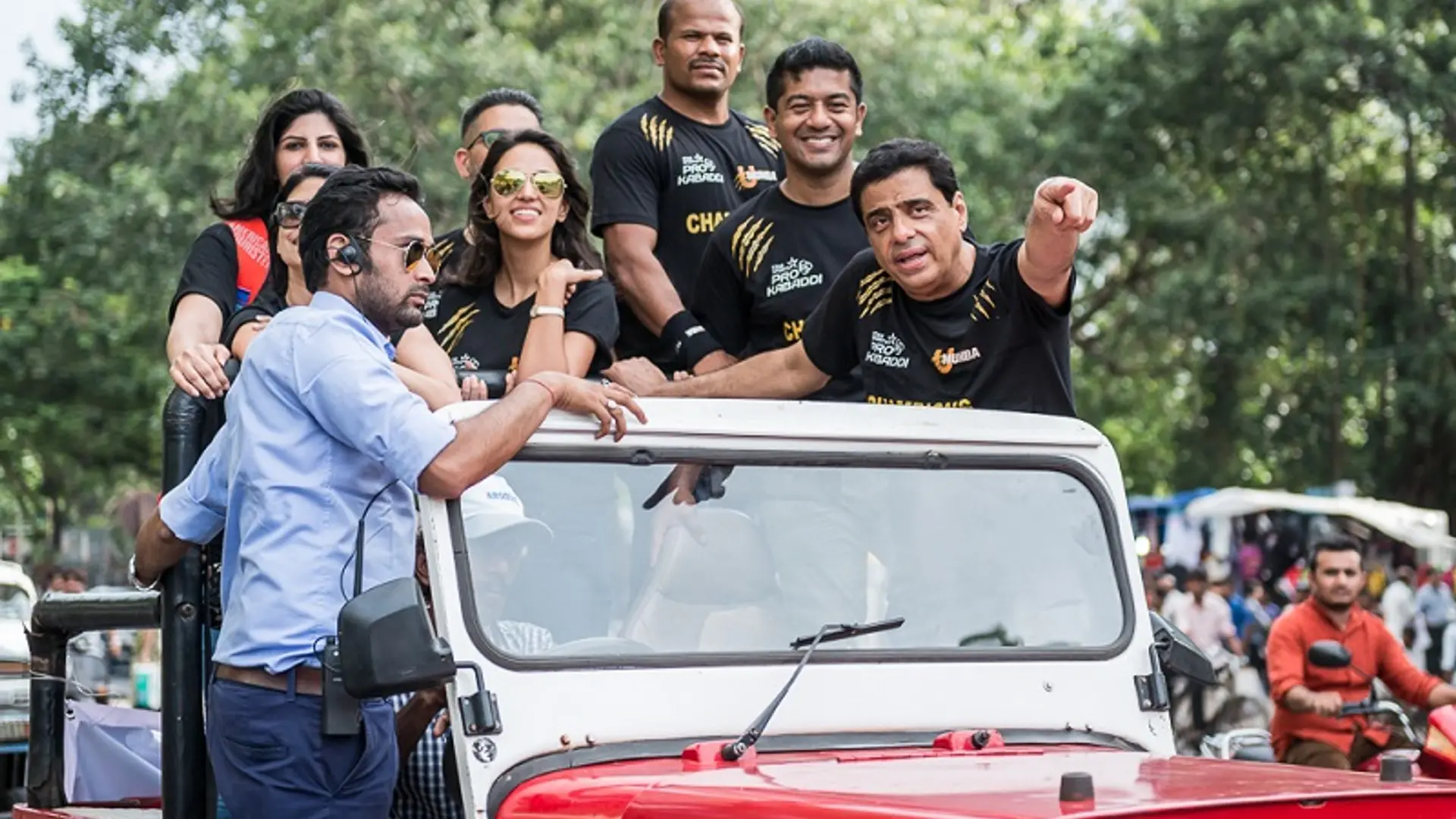Here's what Ronnie Screwvala's version 2.0 looks like
Known for his astute business sense, Ronnie Screwvala opens up on life after UTV, his online education company, and working with Indian entrepreneurs
In the more than two decades of his career, Ronnie Screwvala has done it all: toothbrush manufacturing, cable TV, broadcast content and movie studio.
But the media entrepreneur remains content to stay in the background.
“He’s media-shy and doesn’t talk much, except about his work,” says a friend, a freelance producer of ad and feature films. That’s not surprising, considering that the ups and downs of Ronnie’s media conglomerate have come under intense scrutiny over the years.
“This is a pretty sheltered life when compared to the media phase,” Ronnie jokes.
He’s 60, but the media veteran retains a boyish charm and grace. It’s been more than four years since he exited UTV, the brand he started and built. In 2012, he sold UTV to Disney for a whopping $450 million. The company had gone public in 2005.
But Ronnie did not quit for a quieter life.
In July 2015, Ronnie and Mayank Kumar launched UpGrad, an ed-tech startup. The duo met through a common friend. Mayank was Vice President Education at Bertelsman, and was looking to start a venture in education.
During his UTV days, Ronnie had set up Swadesh Foundation, and Unilazer Ventures. But he has been focused on USports and more so with UpGrad since exiting UTV. Speaking of how it is like working with Ronnie, Mayank says,
“When you deal with Ronnie on a daily basis you realise how hands-on he actually is. He is one of the most curious people I have met. Ronnie doesn’t have any of the jaded businessmen vibes. He gives attention to every single person in the organisation, there are no distinctions. He listens to what everyone has to say.”
The choices for his second innings are different; his targets much bigger. But he’s as passionate about his new role as he was when he started UTV.
UpGrad brings together three varied methods of learning–tuning into specific aspects of distinctive entrepreneurial concepts, experiencing how these concepts work by listening to industry experts, and applying them to real-life business needs.
Amid the flurry of ed-tech startups offering online courses to help professionals’ upskill, Ronnie believes the complete package, including the content, technology and pedagogy presentation, sets UpGrad apart.
Besides, the ed-tech startup has also set up Asia’s first online scholarship fund with an initial corpus of Rs 100 crore. The aim is to get Rs 400 crore in the next three to four years.
“Since we haven’t taken external funding, it becomes easier to work on our plans,” adds Ronnie.
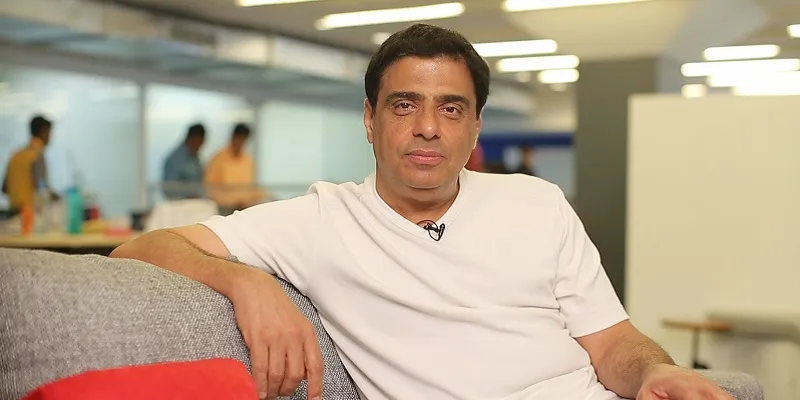
Why not the same thing?
When asked why he didn’t return to media and entertainment, Ronnie, who has authored Dream with Your Eyes Open: An Entrepreneurial Journey, looks exasperated.
“Why would I want to do the same thing again? Where’s the challenge in doing the same thing a little better?” he asks. He adds that building something that multiplies earlier efforts seems like a “pathetic waste”.
That said, UpGrad does have a long way to go.
“It isn’t an easy challenge because UTV achieved a reasonable scale and resonance, in terms of brand, value creation and everything else,” he says.
Ronnie’s office in Lower Parel, Mumbai, is the perfect setting for him. There are sleek tables, shelves packed with books across genres, and a balcony brought alive by a thatch of green grass. Like him, the office exudes his quiet confidence.
Push harder the second time
Sitting back, he explains the difference between his first stint and second innings.
“I am at a stage where I don’t really need a job, but I want one. Not to work for someone else, but for myself. That is a very liberating thought,” Ronnie says.
A complete Mumbaikar, he begins his day at 6.15 am with a brisk walk along the Mumbai waterfront. He follows it up with an hour of yoga.
Colleagues and co-workers agree that he’s always on top of things.
A marketing professional working with Ronnie since his UTV days says, “Responses to emails are instantaneous, he is in back-to-back meetings and present in almost all townhalls. He has a packed schedule and expects everyone in his team to be on top of things as well.”
Ronnie has a maniacal focus towards building brands. He believes that if you build a brand it remains for a lifetime. Many claim him to be unstoppable and focussed at achieving his end goal and purpose.
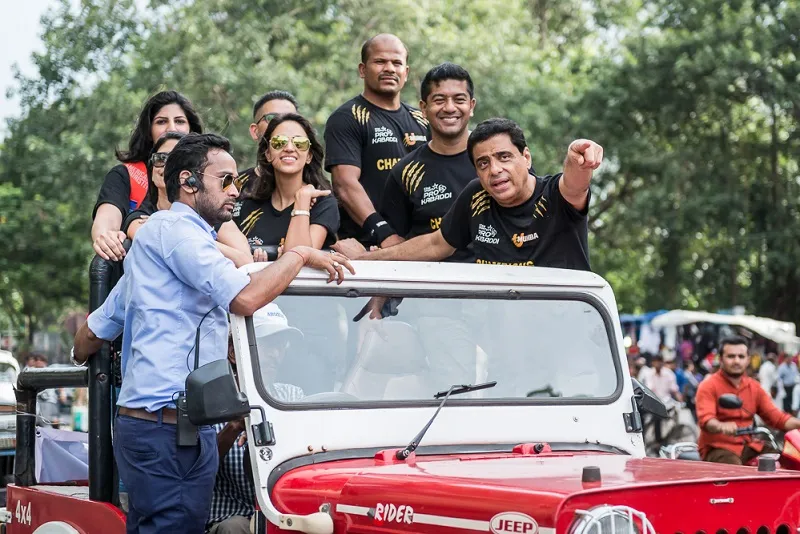
“He is extremely sharp and observant, which essentially keeps you on your toes. There is no time for nonsensical or unnecessary details with him. It is always about being to the point,” says one of Ronnie’s colleagues and employees.
Starting out in the 1980s--when entrepreneurship wasn’t the buzzword that it is today--may have done that. Ronnie believes that being a first-generation entrepreneur helps, especially when funding isn’t easy and is not the only badge of honour of a successful business.
At that time, he had no other choice but to make it work. Especially after his moment of clarity.
“I knew that I couldn't implement somebody else's vision,” he says.
Blame it on his larger-than-life aspirations. Those who have worked and continue to work with him agree that small numbers, dreams and aspirations don’t excite Screwvala. Could that be the reason for his superlative success metrics?
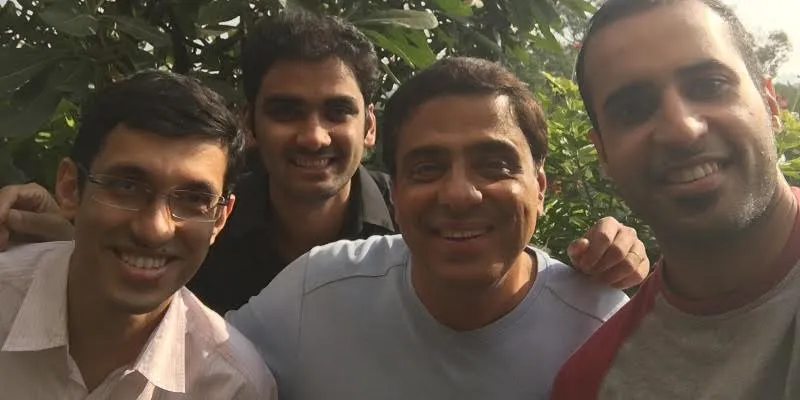
Dream with your eyes open
Falguni Nayyar, founder of Nykaa, an e-commerce platform for beauty products, recalls her interaction with Screwvala from her investment banker days.
She says:
“Even then, Ronnie would talk about scale that wasn’t imaginable. He spoke about building a Disney in India. Nobody would think it was possible, but he always had his eyes set on that goal. And it is inspiring. It is one of the factors that inspired me to start up.”
With UpGrad, Unilazer Ventures, USports and Swadesh Foundation, has Screwvala turned into a “serial entrepreneur”?
Screwvala clarifies that he abhors the phrase, adding that the use of the word serial before another has a negative connotation.
“Serial entrepreneurs don't normally build businesses; they create them to sell. It never works and I’ve never done that. My innings in the media spanned two decades, longer than most. The exit was never pre-planned and, when it happened, made sense for all sides. My second innings is about building long-term businesses and the term ‘serial entrepreneur’ does not represent that correctly,” he explains.
Working for yourself
The desire to do something on his own has been a guiding principle for Screwvala. In his second innings, he was keen to do something different. So when his wife, Zarina, after a stint at Teach for India, wanted to join the organisation, Screwvala felt she could do the same on her own.
“Serendipity forced me to write a mission statement in 48 hours to appeal to her and get her to join Swadesh,” he recalls.
He feels his execution track record made it easier for him work on the idea and ensure that Zarina knew that he meant business.
Along the way, Screwvala felt that sport was the best bet to remain in touch with the world of entertainment. When Anand Mahindra was looking for someone to buy a team, Zarina suggested Screwvala’s name. One thing led to another and USports was born.
“I think I knew in the first kabaddi season that I was really excited about the sport. But I didn’t feel that way about being a team leader subservient to a league, especially a league owned by a broadcaster. There would be a conflict of interest. Also, it’s a lot of fun, but it’s more like a hobby, not a business,” Screwvala says.
The media veteran didn’t feel cricket needed people. Football was the next big thing, but a league wasn’t possible as there wasn’t enough training. That’s what led to USports, a six-year training initiative for boys aged 12, 13 and 14 years in Bundesliga, Germany.
“Without trained talent, we are just going to kick the ball, not play football. We are placed 157 in the world, we may get to 127, but we won’t enter the top 20 without trained talent,” Screwvala says.
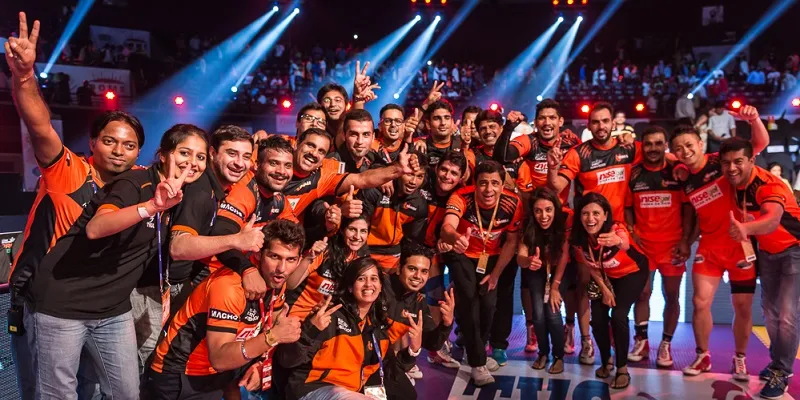
Being a co-founder again
Sports upped the fun factor, but Screwvala missed building a brand from scratch. While working closely with entrepreneurs as a part of Unilazer, he realised that it wasn't in his DNA to be an investor-entrepreneur. He looked at sectors such as health, ready-to-eat FMCG and education.
Screwvala mentioned his interest in education to a friend then working for one of the largest education companies in the world.
“He told me that there are other people looking to start up in education, and that these are the kind of people you need as co-founders. I met Mayank, and we spent the next three months getting to know each other,” Screwvala says.
Given their age difference, Screwvala says it was important to understand that their complementary skills would work. They focused on what could be disruptive in the education space and yet be scalable, after which they founded UpGrad.
“Ronnie is about getting things done. He isn’t scared of making mistakes, for him it is about growing and learning. He is also a very to-the-point kind of person, he doesn’t like dilly-dallying or anyone beating around the bush. Everything we do is about achieving scale and growth,” says Mayank.
Starting up but not a startup
Speaking about UpGrad, he says they are starting up, but it’s not a startup. UpGrad has got experienced people, and it’s essential to channelise the depth of the experience that everyone brings to the table.
On being an investor, he says: “I am from the other side of the table. As far as I am concerned, I see myself as an entrepreneur, who is working closely or backing entrepreneurs.”
When asked about the Indian startup ecosystem and entrepreneurs, he minces no words.
“At what value of raising money will Flipkart stop being called an e-commerce startup? The Bansals should be called first-generation entrepreneurs. There are looseness and short-term-ness associated with the word startup. It gives the image of an old scooter being cranked up with a kickstart,” he says.
He adds that he would like to re-brand the startup ecosystem in India as the first-generation entrepreneurial ecosystem. “That gives it gravitas. The first-generation entrepreneurial ecosystem gives it continuity.”
An old scooter being cranked up with a kickstart. It isn’t an image one can forget. That’s how Screwvala usually communicates - strong imagery backed by words.
“That is how branding is done,” he says.
Branding is key. And that’s how Screwvala scores.
Everything he does stems from a deep passion and belief that a change can be made in the space.
Screwvala says failure is a part of every game. Mistakes will be made, but there shouldn’t be any problem as long as “we continue to move forward and build something with conviction”, he says.


